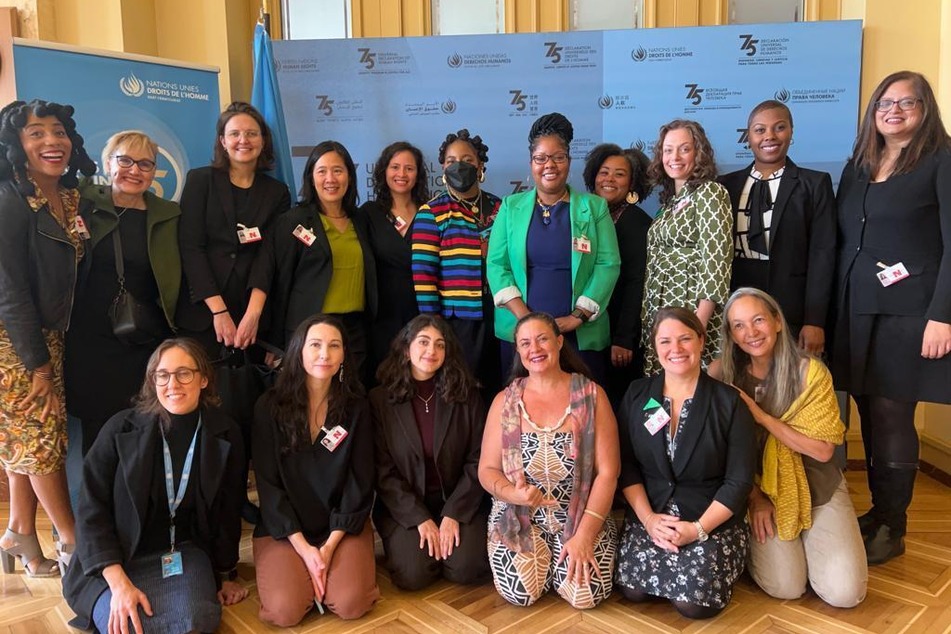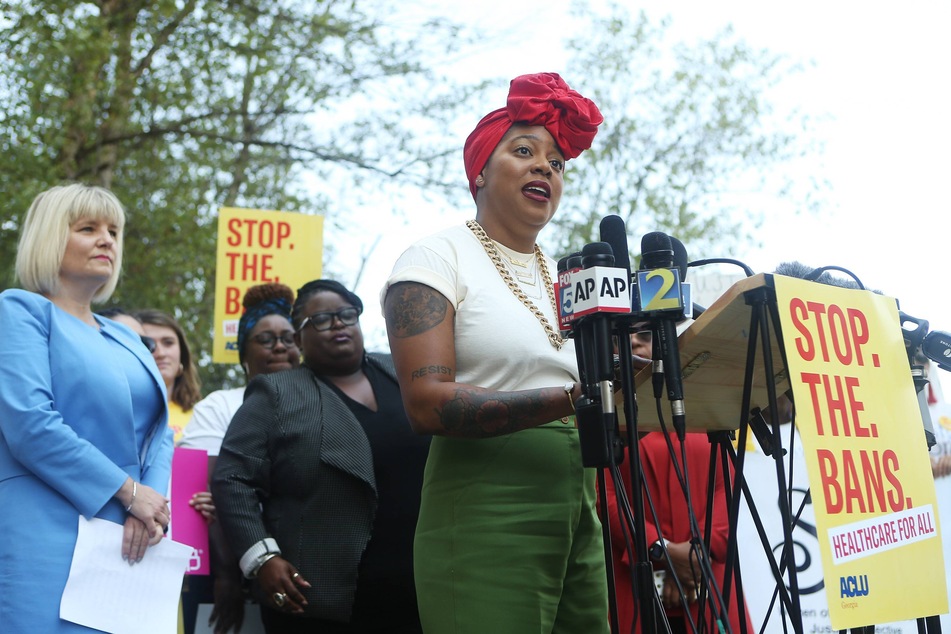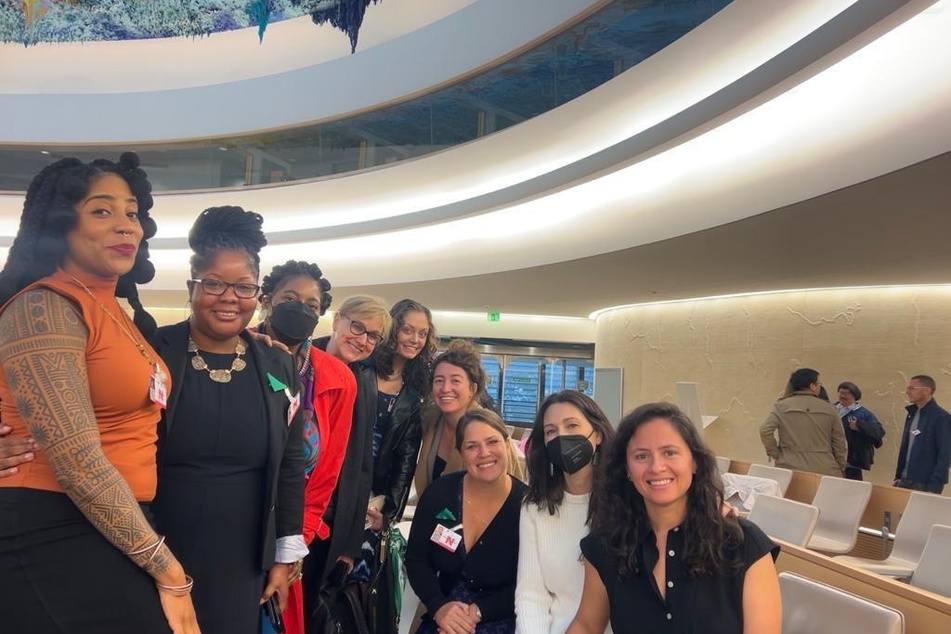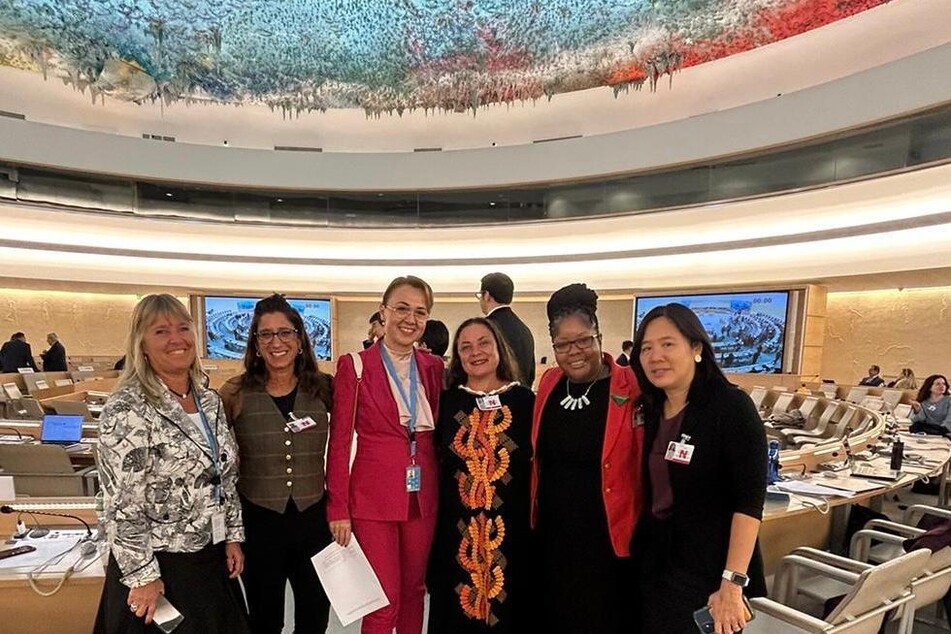Reproductive health advocates take the fight for abortion rights to the United Nations
Geneva, Switzerland - As a slew of abortion bans take effect around the US, advocates are fighting back during the 139th session of the United Nations Human Rights Committee.

Reproductive health advocates traveled across the ocean to Geneva, Switzerland, this month in order to advance abortion as a human right, both within the US and abroad.
They argued that guaranteeing access to abortion falls within the scope of the US' international obligations, as bans can deprive pregnant people of their right to life under Article 6 of the International Covenant on Civil and Political Rights (ICCPR).
During its two-day review, the UN Human Rights Committee questioned the US delegation on efforts to prevent the introduction of new abortion restrictions, ensure people do not have to resort to unsafe measures to terminate a pregnancy, shield health care providers from criminal punishment, and address the nationwide maternal mortality crisis. The committee also asked about reparative measures in place for those who suffer physical and psychological harm resulting from abortion care denials.
Although the Biden administration has outwardly indicated its support for protecting abortion access, the delegation's answers to questions around reproductive health came across to advocates as evasive, scripted, and overly general. Many were left feeling the federal government does not take the issue as seriously as it should under international law.
"It was insulting to watch and to listen to, and it was very disheartening," Bethany Van Kampen Saravia, senior legal and policy advisor for Ipas, told TAG24 NEWS.
"I think we need to remember who we're dealing with," she added. "How long did it take President Biden to say the word 'abortion,' and what did it take? It took the overturning of Roe v. Wade."
Scrambling to adjust to changing abortion restrictions

The reversal of decades of federally protected abortion rights and implementation of repressive new state laws have left providers on the ground scrambling to ensure continuation of care.
Kwajelyn Jackson, executive director of the Feminist Women's Health Center in Atlanta, Georgia, was in Geneva to show how the US' failure to meet its ICCPR obligations is leaving providers and communities of color in the lurch.
Georgia's fetal heartbeat law, which effectively bans abortions after around six weeks, went into effect in June 2022, creating a climate of fear and intimidation.
Since then, pregnant people, health care providers, and clinic staff have struggled to balance changing regulations not only in the Peach State, but also in neighboring areas. Money and time constraints mean out-of-state care is often out of reach for the most marginalized. Meanwhile, armed anti-choice protests, attacks on medication abortion, and rumblings around a national abortion ban threaten to make the situation even worse.
"It feels like quicksand. As soon as we try to get some stability and to adapt and adjust to the circumstances we find ourselves in, there's another trap door that falls out from under us," Jackson said.
Tracing the racist roots of anti-abortion policies

A board member of the Black Mamas Matter Alliance, Jackson stressed that many of the issues raised during the ICCPR review are interconnected, from abortion restrictions to mass incarceration, criminalization of asylum, and Indigenous cultural erasure.
She noted that all are driven by policies rooted in racial discrimination and white supremacy that are wreaking havoc on the same Black and brown communities.
"People being pushed out of their neighborhoods, being stripped of the ability to obtain and build wealth, being pushed into prisons out of the educational system – all of these things compound together, and just the stress of being Black in America is a part of what contributes to maternal mortality," Jackson explained.
Given the growing and multi-pronged threats to communities like hers, Jackson was frustrated by US officials' imprecise and at times self-congratulatory responses to Human Rights Committee questions on abortion access. Even more posturing from the federal government is expected as the 2024 presidential election approaches, but words are empty if they do not come with a commitment to reckon with past harm.
"People's real lives hang in the balance, and people want to see some real substantial change in their conditions. So many communities, across multiple administrations, have seen none of that," Jackson said.
Building power back home

Despite the disappointing US responses and dire conditions at home, advocates are optimistic after the experience in Geneva.
Jennifer Driver, senior director of reproductive rights at the State Innovation Exchange, is already thinking of ways to empower progressive lawmakers to effect change sub-nationally as meaningful federal action remains elusive.
"We know that abortion access moves really fast at the state level, either expanding or restricting it, so state legislators have a role of really leaning into this international covenant," Driver said.
Moving forward, advocates are hoping the Human Rights Committee will emphasize decriminalizing abortion and implementing the 2022 World Health Organization guidelines in their concluding observations and recommendations for the US, scheduled for release on November 3.
Even in Republican-controlled states like Georgia with restrictive laws on the books, there is potential for progressive legislators to embrace the ICCPR and reaffirm that abortion bans violate not only the US Constitution, but also international law.
Adopting this human rights framework could boost domestic abortion rights advocacy by showing how reproductive health struggles around the world are intertwined. Ultimately, there's a sense that as other countries make strides forward in the fight for reproductive justice, the US is actually moving backwards.
"It was interesting that [US Ambassador Michèle Taylor] in her closing remarks was talking about the US being a leader on a lot of these things, and we're actually not. We actually have a long way to go," Driver insisted.
Cover photo: Courtesy of Jennifer Driver

